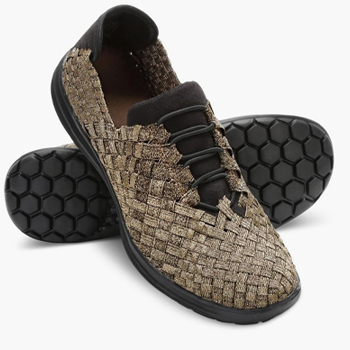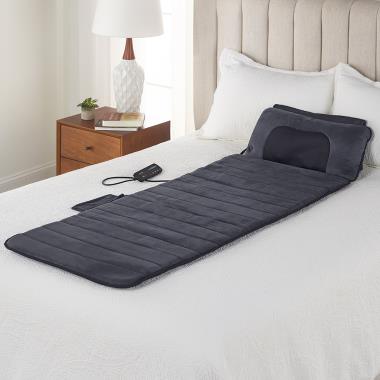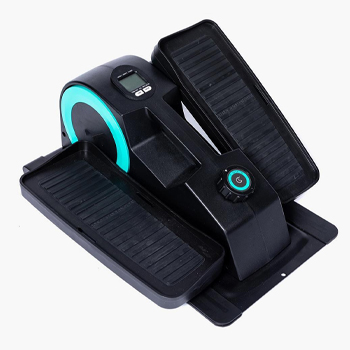August 14, 2022
CBD Goes Mainstream To Help Those In Pain

If you suffer from chronic pain, you are not alone. The CDC reviewed data from the 2016 National Health Interview Survey and found that one in five American adults, or about 50 million people, suffer from chronic pain that interferes with their daily activities.
A growing number of those trying to manage their pain have begun integrating products containing Cannabidiol (CBD), in conjunction with or as an alternative to other standard treatment options. This wide availability of CBD products today comes as a result of the passage of the 2018 Farm Bill. This bill allowed broad expansion on the production and sale of hemp, as long as it contained less than 0.3% of THC, the psychoactive compound in cannabis that makes users high.
According to a recent survey by SingleCare, one in three Americans have personally used CBD products, up from just one in seven in 2019. Not surprisingly, reasons for usage vary widely with age: People 65 and older use CBD primarily for chronic pain and arthritis, while those age 18-24 use it instead for anxiety relief or recreational purposes.
However, not all CBD products are created equal. Unscrupulous companies have taken advantage of the lack of government oversight and uninformed consumers by using inferior ingredients or making inaccurate or unsubstantiated claims about the benefits of their products.
In response to our customers' requests for natural pain relief, our buying team scoured the market for the best CBD products, working with top-tier suppliers and applying the same meticulous research and analysis we give to other items we sell. The resulting assortment is a reflection our customers' constantly evolving needs, from The Professional's Natural Pain Relief CBDa Cream and The CBD Infused Melatonin Nighttime Gummies, to The CBD Infused Rejuvenating Shampoo and The Therapeutic CBD Spa Set.
The growing popularity of products with CBD, CBDa, and Chylobinoid among achy adults has not gone unnoticed by the medical establishment. Dr. Scott Palmer is a certified internal medicine physician at Rush University Medical Center in Chicago, a medical team physician for two professional Chicago sports teams—and a CBD advocate. (Full disclosure: Dr. Palmer is also Chief Medical Advisor for the manufacturer of our CBDa cream.)
"Reputable hard science and early clinical trials supporting the use of cannabinoids is growing," said Dr. Palmer. "That's why I frequently recommend CBDa Chylobinoid® cream to help alleviate muscular, joint, or neuropathic pain from athletic activity, chronic arthritis, or mild injuries."
Despite the fast-growing popularity of CBD among patients and medical professionals, there are still many misconceptions swirling around it. How does your knowledge of CBD stack up? The brief true/false quiz below will give you an idea (answers at end of post).
True or False?
- CBD is the same as marijuana.
- CBD is addictive.
- The government regulates CBD.
Curious about whether CBD products can enhance your active life? Hammacher Schlemmer is sponsoring a Free webinar, featuring the aforementioned Dr. Palmer, to explain the benefits of natural pain relievers and answer any of your questions. Registration is required here. We look forward to having you joining us!
Answers to quiz:
- False. While it's in the same family as marijuana, CBD contains only trace amounts of THC, the psychoactive compound that makes a user high.
- False. Studies have shown that CBD is not addictive. In fact, some research has indicated that CBD may help reduce cravings for those trying to break addictions.
- False. Currently, CBD isn't federally regulated, as it's categorized as a nutritional supplement and not a medication.
Sources:
https://www.cdc.gov/mmwr/volumes/67/wr/mm6736a2.htm
https://www.singlecare.com/blog/cbd-survey/
https://news.gallup.com/poll/263147/americans-say-cbd-products.aspx
https://www.who.int/news/item/13-09-2018-40th-ecdd-news-briefing
Our Rather Famous Lifetime Guarantee
The products we offer are as unique as our name and our merchandise is backed by our Lifetime Guarantee of Satisfaction.
Learn MoreThe Story Behind a Retail Legend
In the beginning there was hardware. Over the decades much has changed at Hammacher Schlemmer. But our original philosophy has remained constant...and still guides us more than 175 years later.
Read Our StoryThe affiliated, independent Hammacher Schlemmer Institute was created in 1983 to rigorously research, test and rate products to make the Best products available to our customers.
Learn MoreSave $10 on Your Next Order & be the first to know about our unique new products
*Offer valid on orders over $99
Save $15 on Your Next Order & more exclusive offers when you sign up for text alerts
By signing up via text, you agree to receive recurring automated promotional and personalized marketing text messages (e.g. cart reminders) from Hammacher Schlemmer at the cell number used when signing up. Consent is not a condition of any purchase. Reply HELP for help and STOP to cancel. Msg frequency varies. Msg & data rates may apply. View Terms & Privacy.
*Offer valid on orders over $99






























